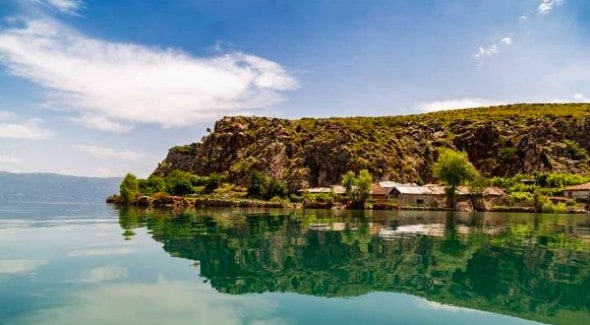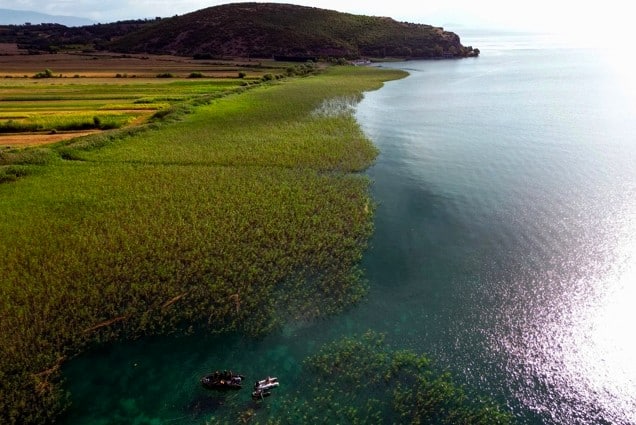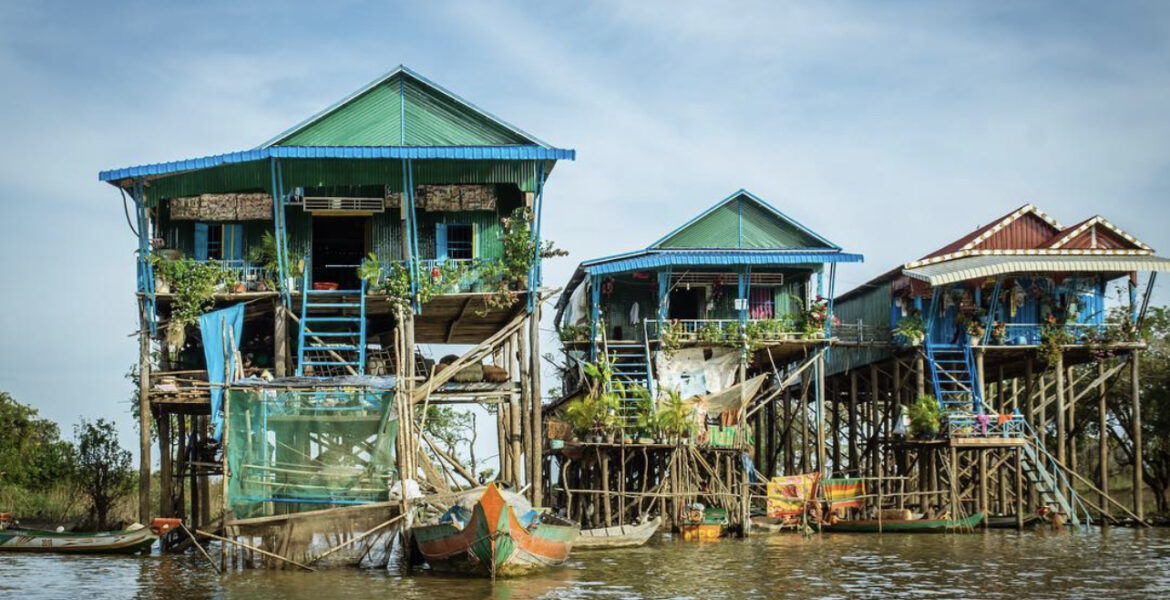In a remarkable archaeological discovery just north of Greece, beneath the tranquil waters of Lake Ohrid, lies the remnants of what could be the oldest European lake village ever found. Dated between 5,900 to 5,800 BC, this ancient village, located on the border of Albania and North Macedonia, has captured the fascination of researchers from Switzerland and Albania, shedding light on a community that thrived over 8,500 years ago.
What sets this submerged village apart is not only its age but also its unique construction. The villagers of this era were ingenious, building their homes on stilts. This architectural choice allowed them to navigate the ever-changing water levels in the mountainous region surrounding Lake Ohrid. But what's even more intriguing is the astonishing defence mechanism employed by these ancient residents - over 100,000 wooden spikes that encircled their village.
"To protect themselves in this way, they had to cut down a forest," explained Albert Hafner, a professor of archaeology from Switzerland's University of Bern and the lead researcher of the project. The dedication required to harvest such a vast number of wooden spikes highlights the importance of this defence strategy to the villagers.
The question that looms over this discovery is, why did a community of no more than 500 people feel the need for such an extensive defensive fortification? The answer remains elusive, but researchers are committed to uncovering the truth. The oak planks used in these spikes could hold valuable clues. By studying the tree rings, researchers hope to gain insights into the environmental changes that shaped the village's history.

Hafner had previously suggested that this village played a pivotal role in the proliferation of farming in Europe. The recent findings, from the wooden spikes to the precise dating, further solidify this belief. The significance of this discovery has not gone unnoticed, as dignitaries ranging from the Prime Minister of Albania to Swiss Ambassador Ruther Huber have shown keen interest in these excavations.
The excavation team, with the assistance of divers, is committed to unravelling more secrets from this submerged time capsule. As they meticulously scavenge wood fragments and animal bones from the lake's depths, they hope to gain a deeper understanding of the daily life in this ancient village.
"We found various seeds, plants and the bones of wild and domesticated animals," said Ilir Gjepali, an Albanian archaeology professor working at the site.

The journey to decipher why a small community required 100,000 wooden spikes promises to be a story that unfolds over the next few decades, with experts saying it will take at least twenty years to complete full exploration of the site.
This discovery in Lake Ohrid, just north of Greece, is a compelling reflection of the rich history of the region. As archaeologists continue their exploration of the site , they are poised to unveil even more about the mysteries of this ancient lake village and its connection to the enduring legacy of the Greeks and their neighbours in the Balkans.
"These are key prehistoric sites that are of interest not only to the region but to the whole of southwest Europe," said Hafner.
Read also I Love Paros (in the Winter)
Stay updated with the latest news from Greece and around the world on greekcitytimes.com.
Contact our newsroom to share your updates, stories, photos, or videos. Follow GCT on Google News and Apple News.


